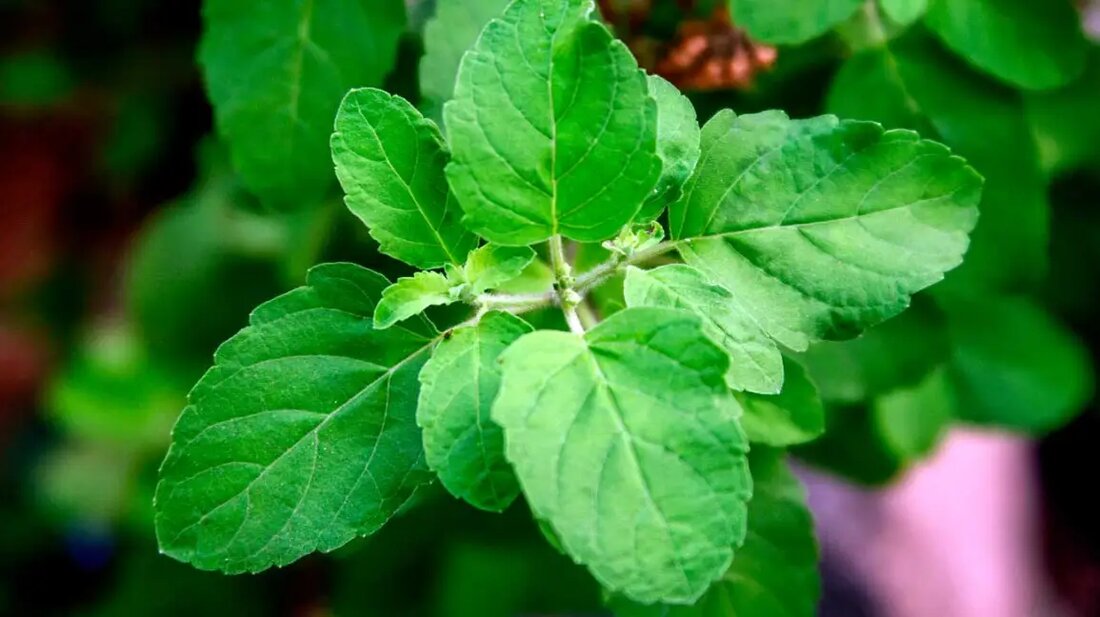This medicinal herb is perfect for dry coughs
Dry cough is one of the most common illnesses. It is a reflex that clears the airways of irritants and mucus. However, a dry cough, also known as an “unproductive cough,” does not produce mucus or sputum. A persistent dry cough can be annoying and interfere with daily life. Most cases of dry cough are caused by a reaction to an allergen, pollutant, or toxin from the environment that the body expels through the respiratory system through coughing. Some natural home remedies can reduce the frequency of coughing and relieve sore and irritated throats. One of the best home remedies is drinking daily...

This medicinal herb is perfect for dry coughs
Dry cough is one of the most common illnesses. It is a reflex that clears the airways of irritants and mucus. However, a dry cough, also known as an “unproductive cough,” does not produce mucus or sputum.
A persistent dry cough can be annoying and interfere with daily life. Most cases of dry cough are caused by a reaction to an allergen, pollutant, or toxin from the environment that the body expels through the respiratory system through coughing. Some natural home remedies can reduce the frequency of coughing and relieve sore and irritated throats.
One of the best home remedies is drinking Tulsi tea daily. Tulsi (Indian basil) has long been known to have countless medicinal healing properties, which also makes it an effective and safe natural cough remedy.
Steep 5-7 tulsi leaves in 300-500 ml of water for a few minutes," says Parmeet Kaur, Senior Dietician, Narayana Superspeciality Hospital. Steep the infusion for 5 minutes. To enhance the effect, add some spices like cardamom, ginger, black pepper and cloves to make a herbal decoction. Drink it daily to reduce dark circles, Prevent acne, rashes and other skin problems and protect organs and tissues from chemical and physical stress because it is rich in nutrients such as vitamin K.
Here are some causes of dry cough you should know:
asthma
Asthma is a condition in which the airways swell and narrow. Coughing is one of the most noticeable symptoms of asthma; therefore, one must be wary of the effects it can cause.
Gastroesophageal reflux disease
Gastroesophageal reflux disease is a form of chronic acid reflux. It generally occurs when stomach acid flows back into the esophagus, which connects the mouth to the stomach. Excess stomach acid can irritate the esophagus and trigger the cough reflex
Viral infections
If you become infected with one of the many cold viruses that also cause coughing. However, the cough after a cold usually lasts long after the other symptoms have improved. Dry cough is due to irritation of the respiratory tract, which is often sensitive after a viral illness.
Tulsi has long been known for its countless medicinal benefits4. Environmental Irritants: These generally irritate the respiratory system, including smoke, pollution, dust, mold and pollen. Chemical particles can also cause a dry cough.
Smoke
Smoking can also be a cause of dry cough. Directly inhaling the toxins contained in cigarettes can cause such a condition. The toxins that build up in the lungs cause an inflammatory response, and the body eliminates them through coughing.
bronchitis
Acute bronchitis often develops three to four days after a cold or flu. It may start with a dry cough, and if it lasts longer, the coughing attacks may bring mucus. One of the best solutions: Tulsi tea
Tulsi belongs to the mint family and is used primarily as a remedy in the Ayurvedic tradition. Holy basil or tulsi leaves are widely used for preparing desi mixtures to treat microbial infections and boost immunity. Not only does it have antiseptic and analgesic properties that help in many problems like dry cough, but a tea made with tulsi leaves also provides relief from allergic bronchitis, asthma and other lung diseases in no time. It also has immunomodulatory (boosting immunity) and antitussive (relieving cough) properties that relieve strain on the respiratory tract. In fact, it contains certain oils that can relieve constipation.
How to make Tulsi tea at home?
Holy/Indian basil, also known as tulsi, is an easy herb to grow in your home herb garden. So it's best to pick your fresh herb and wash it thoroughly.
Follow these steps to make tulsi tea at home:
Add a cup of water and five to seven tulsi leaves in a pot. Let it cook on a low flame for 10 minutes. Turn off the stove and let the brew cool down. You can also add other healing ingredients like cardamom, ginger, black pepper and even honey to this herbal extract. You can also mix honey with fresh tulsi leaves and take it twice a day to get maximum benefits. No matter what the cause of dry cough is, Tulsi tea can help you.

 Suche
Suche
 Mein Konto
Mein Konto
